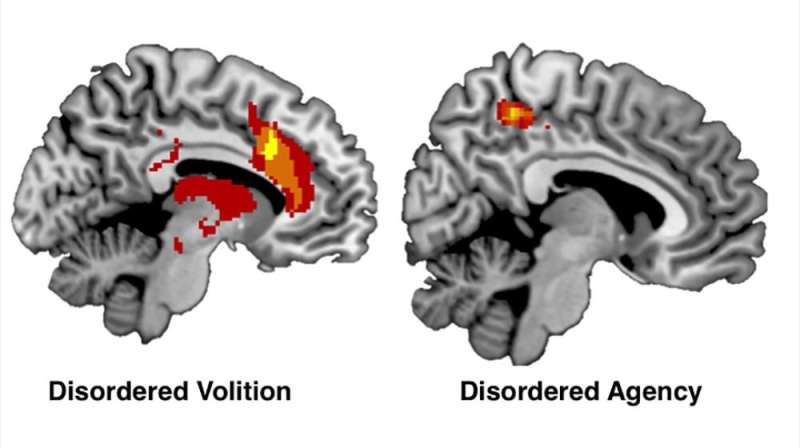Study looks at brain networks involved with free will

Utilizing lesion network mapping, a recently developed technique for analyzing how the brain works, Ryan Darby, MD, assistant professor of Neurology at Vanderbilt, studied free will perception related to movement decisions.
In the study, published online October 2018 in Proceedings of the National Academy of Sciences, he, along with researchers from Harvard Medical School, studied cases of akinetic mutism (patients who lack the motivation to move or speak) and alien limb syndrome (patients who feel that movement is generated by someone else.)
Their study showed that although injuries disrupting volition—the desire to act—can occur in many different locations, they fall within the same brain network. Injuries disrupting agency—the feeling of responsibility for carrying out those actions—also can occur in many different locations, but they fall within a separate network.
"Our approach challenges the assumption that neuropsychiatric symptoms should localize to one brain region, and instead shows that these symptoms localized to interconnected brain networks," said Darby, the lead author of the study. "Once we understand that agency and volition localize to brain networks, can we then take that knowledge and develop a new approach to treating a symptom?"
Supporting this possibility, the authors found that brain stimulation to different parts of these brain networks could change free will perception.
They also studied psychiatric patients with disrupted free will, including motor conversion disorder (paralysis or abnormal movements not related to an organic cause) and catatonia (unresponsiveness by someone who appears to be awake). These psychiatric patients also had neuroimaging abnormalities in brain networks associated with volition and agency.
"There are very few approaches where you can compare a similar type of symptom in a neurological patient and a psychiatric patient," Darby said. "Our study shows the promise of using our network localization method in neurological patients to better understand symptoms in psychiatric patients. That being said, it's the first time we have used our technique with neuroimaging abnormalities in psychiatric patients. It would require further study and validation, but I think the promise is there."
The senior author of the study is Michael D. Fox, MD, Ph.D., of Harvard, the director of the Laboratory for Brain Network Imaging and Modulation. Darby worked with Fox during his time as the Sidney R. Baer Jr. Research Fellow in Clinical Neurosciences at Beth Israel Deaconess Medical Center.
Darby has previously utilized lesion network mapping in published studies of delusions/Capgras syndrome and criminal behavior.
More information: R. Ryan Darby el al., "Lesion network localization of free will," PNAS (2018). www.pnas.org/cgi/doi/10.1073/pnas.1814117115



















